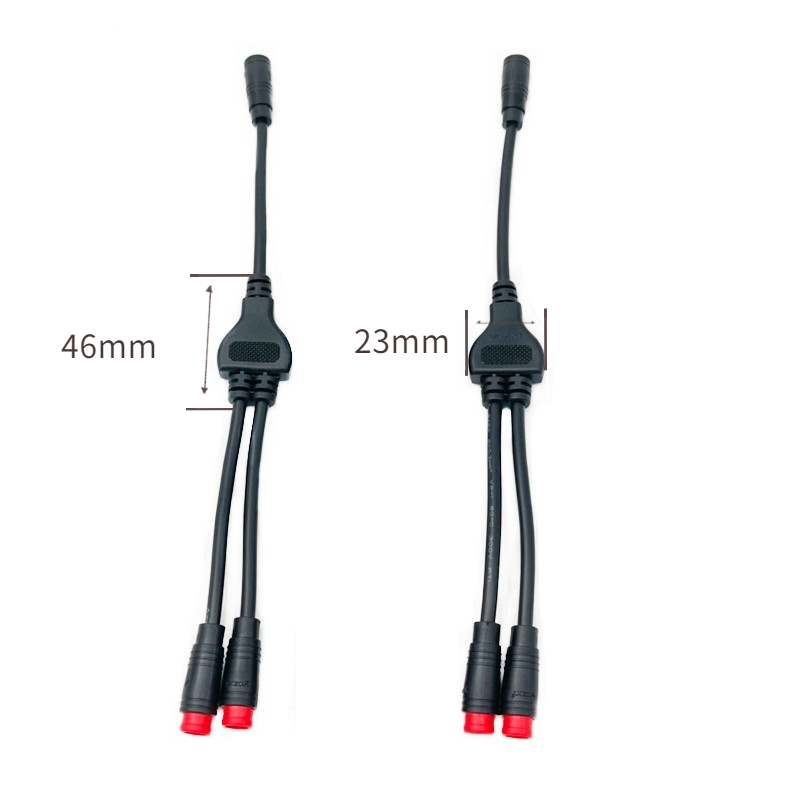News


News

Y Connector Electrical: The Ultimate Guide to Splitting Power and Signals
Release time:2025-03-14
viewed:1100
A Y connector electrical (or Y-shaped splitter) is a simple yet versatile tool for branching electrical or signal paths. Designed to split one input into two outputs (or vice versa), these connectors are indispensable in both consumer electronics and industrial systems.

A Y connector is a cable assembly with three ends:
One input (male/female port) and two outputs (male/female ports).
Common configurations:
Power splitter (e.g., 1×DC jack to 2×USB ports).
Signal splitter (e.g., 1×RCA audio to 2×speakers).
Data splitter (e.g., Ethernet Y-cable for network extensions).
Their Y-shaped design minimizes space while maintaining signal integrity or power distribution.
Y connectors excel at splitting resources without compromising performance. For instance, they can distribute audio/video signals to multiple devices in a home theater system or allow two devices to share a single power source, such as charging smartphones from one car charger.
Engineered for tight spaces, Y connectors often use flexible materials like braided nylon or reinforced PVC. This makes them ideal for installations behind TVs, inside server racks, or within industrial control panels.
These connectors support diverse standards, including:
Audio/Video: RCA, HDMI, 3.5mm AUX.
Power: USB-A, USB-C, DC barrel plugs.
Data: Ethernet, USB 3.0, and industrial M12 connectors.
By eliminating the need for complex wiring or additional adapters, Y connectors reduce setup costs and simplify maintenance.
Split a single audio output to multiple speakers or headphones. For example, a 3.5mm Y splitter can connect a gaming console and TV to a shared soundbar, enhancing your home theater experience.
Power multiple devices like dashcams and GPS units simultaneously from a single 12V socket. A dual USB Y connector with voltage regulation ensures stable charging without overloading the circuit.
In factories, Y connectors split sensor data streams to multiple PLCs or monitoring systems. M12 Y-cables are widely used to connect industrial sensors to control units, ensuring real-time data sharing.
Solar installations often use IP67-rated PV Y branch connectors to link solar panels to dual charge controllers, optimizing energy distribution in outdoor environments.
Extend Ethernet connectivity in server rooms with Cat6 Y splitters, allowing two devices to share a single LAN port while maintaining high-speed data transfer.
Match the connector’s specifications to your power needs. For example, a USB Y splitter should support at least 5V/2A to charge two devices safely. For high-power applications like 100W laptop chargers, ensure compatibility with Power Delivery (PD) standards.
Use shielded cables for HDMI or audio signals to minimize interference. Unshielded cables may introduce noise, degrading audio quality or video resolution.
For outdoor or industrial use, prioritize connectors with IP67/IP68 ratings to resist dust, moisture, and temperature extremes. In coastal areas, corrosion-resistant materials like gold-plated contacts are essential.
Verify port compatibility (e.g., USB-C vs. Micro-USB) and physical dimensions. Oversized connectors might not fit in cramped spaces, while undersized ones could loosen over time.
Overloading Circuits: Splitting a 5V/1A port into two 1A outputs risks voltage drops. Always check power limits.
Ignoring Signal Integrity: Cheap unshielded Y cables can degrade audio/video quality. Invest in shielded options for critical applications.
Protocol Mismatches: Using a USB 2.0 Y connector with USB 3.0 devices caps data speeds at 480 Mbps instead of 5 Gbps.
From home theaters to solar farms, Y connector electrical solutions simplify complex wiring tasks without sacrificing performance. Whether splitting power, audio, or data, choosing the right connector ensures efficiency, reliability, and cost savings.